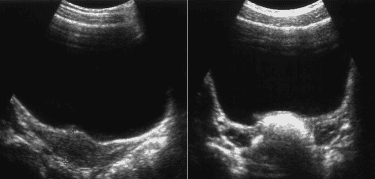This is an automatically translated article.
Karyotype tests are tests done to determine if the fetus has genetic and chromosomal disorders. During pregnancy, the mother and the fetus may face some abnormal risks, so karyotype testing is only performed in high-risk women.
1. What is Karyotype?
When you are pregnant, to ensure that the baby is born without genetic and chromosomal disorders, the doctor will order the pregnant woman to perform some prenatal screening tests. These screening tests are usually done the first time in the first trimester and the second in the second trimester.
If the results of these tests are normal, no further screening tests are needed. However, if the test results are abnormal, to know for sure if your growing baby has a genetic or chromosomal problem, your doctor will recommend taking a small sample of cells from the fetus to do a karyotype. test, also known as a chromosomal test.

Karyotype hay còn gọi là xét nghiệm nhiễm sắc thể đồ
2. What is Karyotype test done for?
Karyotype test or chromosomal test is done to determine if the fetal chromosomes are normal or not. Except for egg and sperm cells, other cells in the human body have 46 chromosomes (23 pairs), the child inherits 23 chromosomes from the father and 23 chromosomes from the mother. The baby's chromosome set is abnormal when an extra chromosome is added, one is missing, or one is damaged.
Some common congenital syndromes due to chromosomal disorders are detected by Karyotype test such as:
Down syndrome: occurs due to an extra chromosome 21 in the genome. Children with Down syndrome will have poor physical and intellectual development, delayed language development, ability to care for themselves. In addition, children with Down syndrome often have congenital abnormalities of the heart, hearing, vision, thyroid disorders, digestion, ... Edwards syndrome: occurs due to an excess of one chromosome 18 in the genome. Children with Edward's syndrome often have serious health problems and most will not live more than a year. Patau syndrome: caused by an excess of a 13th chromosome in the genome. Babies are often born with serious problems with heart, nerves, weak health, underdeveloped brain. Babies with Patau syndrome usually live only a short time after birth. Klinefelter syndrome: is a genetic disorder that occurs in men. The baby boy was born with an extra X chromosome, the sex chromosome is XXY instead of XY as usual. Men with Klinefelter syndrome during puberty often fail to develop and may become infertile later in life. Turner syndrome is a genetic disorder that occurs in females. Baby girls are born with missing or damaged chromosomes, the sex chromosome is XO instead of XX as usual. Children with Turner syndrome have a short neck, short stature, when they are adults, they do not have periods, their breasts do not develop, they cannot bear children.

Thông qua Karyotype test có thể phát hiện Hội chứng Down
3. How is chromosomal testing done?
To perform the karyotype test, the doctor needs a sample of fetal cells. The doctor will depend on the time of pregnancy and consider the possible risks to determine the appropriate method of implementation.
Chromosome testing methods include:
Chorionic villus sampling (CVS): chorionic villi are small structures of placental tissue that share the same genetic makeup as the fetus. The chorionic villus test helps to determine the status of the fetal chromosomal set. The doctor will use a long needle to penetrate the abdominal wall into the uterus, tissue samples from the placenta will be aspirated. This tissue sample will be sent to a laboratory for chromosomal testing. Test results will help determine if the fetus has genetic problems, chromosomal disorders or not. Chorionic villus sampling can be done between 10-13 weeks, earlier than amniocentesis, so parents can make an early decision if there is an abnormality in the fetus. The downside of this method is that it can cause miscarriage, 1 in 100 women who do it, there is a chance that 1 woman will have a miscarriage. Therefore, doctors only order a chromosomal scan for high-risk mothers. Amniocentesis: is a method of removing fetal cells by inserting a needle into the amniotic cavity to drain amniotic fluid. Amniocentesis is usually done between 15 and 20 weeks of pregnancy. The amniotic fluid sample collected will be sent to a laboratory for chromosomal analysis. The test results will help to conclude whether the fetus has congenital malformation syndromes due to chromosomal disorders. Amniocentesis can also cause miscarriage, although the probability is lower than chorionic villus sampling. Out of 200 women who have amniocentesis, 1 is at risk of miscarriage. Unlike previous screening tests (such as the double test or the triple test) which were predictive, chromosomal tests such as chorionic villus sampling or amniocentesis are definitive tests, with a high incidence rate. More than 99% accurate rate, helping to identify congenital chromosomal abnormalities.
Having a baby is a great happiness, especially for infertile parents. However, giving birth to children with malformations and underdevelopment will be a burden that no parent wants. Therefore, if your doctor determines that you are at high risk of having a baby with genetic and chromosomal disorders, you should have a chromosomal test. Based on the chromosomal results, the doctor will give appropriate advice.
Currently, there are many medical facilities that can perform prenatal screening methods. However, in order to ensure the most accurate test results and appropriate treatment, parents need to choose reputable clinics with a specialist in obstetrics and gynecology and a team of experienced doctors and nurses. experience and expertise.

Bệnh viện Đa khoa Quốc tế Vinmec còn triển khai Chương trình Chăm sóc Thai sản trọn gói.
Vinmec IVF Reproductive Center is the address of infertility - infertility treatment chosen by many couples. So far, the Center has performed fertility support for over 1000 infertile couples with a success rate of 45%-50%. This rate is equivalent to developed countries such as the UK, USA, Australia,...
The center gathers a team of leading experts in the field of obstetrics and gynecology nationally and internationally, trained in centers leading in the world such as in the US, Singapore, Japan, Australia and famous fertility centers in the world.
With a high level of expertise and extensive experience, Vinmec IVF Center's experts are capable of synchronously and comprehensively deploying the most advanced assisted reproductive techniques today, helping realize the dream of becoming a parent of hundreds of families across Vietnam.
If you have a need for consultation and examination at the Hospitals of the National Health System, please book an appointment on the website for the best service.
Reference source: webmd.com
Please dial HOTLINE for more information or register for an appointment HERE. Download MyVinmec app to make appointments faster and to manage your bookings easily.













